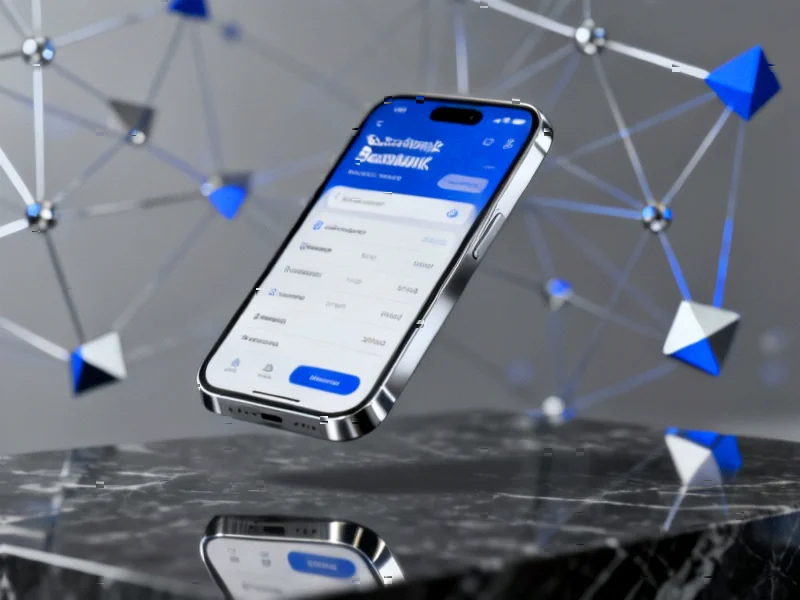New AI Browser Introduces Unprecedented Security Challenges
OpenAI’s recently launched ChatGPT Atlas browser contains significant security vulnerabilities that could enable attackers to turn the AI assistant against its users, according to cybersecurity experts. The browser, designed to help users complete tasks across the internet, reportedly faces particular risks from “prompt injection” attacks where hidden commands could manipulate the AI into revealing sensitive data or performing harmful actions.
Table of Contents
How Prompt Injection Attacks Threaten AI Browsers
Security analysts suggest the core vulnerability stems from AI browsers’ inability to reliably distinguish between instructions from trusted users and malicious text embedded on untrusted webpages. According to reports, hackers could create webpages containing hidden instructions that any visiting AI model might execute, such as opening a user’s email and exporting all messages to an attacker.
George Chalhoub, assistant professor at UCL Interaction Centre, told Fortune that “the main risk is that it collapses the boundary between the data and the instructions: it could turn an AI agent in a browser from a helpful tool to a potential attack vector against the user.” He added that this could enable the AI to extract emails, steal personal data from work accounts, access social media messages, or compromise passwords.
OpenAI’s Response to Security Concerns
OpenAI’s Chief Information Security Officer Dane Stuckey stated in a social media post that the company is “very thoughtfully researching and mitigating” prompt injection risks. Sources indicate the company has implemented several protective measures, including extensive red-teaming, novel model training techniques to reward ignoring malicious instructions, overlapping guardrails, and systems to detect and block attacks.
Stuckey acknowledged that “prompt injection remains a frontier, unsolved security problem” and that adversaries will likely invest significant resources to exploit these vulnerabilities. The company reportedly built rapid response systems and continues investing in research to strengthen model robustness and infrastructure defenses.
Real-World Exploits Already Demonstrated
Just hours after ChatGPT Atlas launched, security researchers and social media users demonstrated successful prompt injection attacks. One user showed how clipboard injection could exploit Atlas by embedding hidden “copy to clipboard” actions in webpage buttons, potentially overwriting a user’s clipboard with malicious links that could lead to phishing sites., according to additional coverage
Additionally, Brave, an open-source browser company, published a blog detailing several attacks AI browsers are particularly vulnerable to, including indirect prompt injections. The company had previously exposed similar vulnerabilities in Perplexity’s Comet browser, where attackers could embed hidden commands in webpages that AI would execute when summarizing content.
Broader Privacy and Implementation Concerns
Security experts warn that these AI browser vulnerabilities represent a significantly greater threat than traditional browser security issues. According to analysts, the attack surface is much larger and effectively invisible because AI systems actively read content and make decisions for users.
UK-based programmer Simon Willison expressed concern in his blog, stating that “the security and privacy risks involved here still feel insurmountably high to me.” He called for deeper explanations of the steps Atlas takes to avoid prompt injection attacks, noting that current defenses appear to rely heavily on users monitoring agent mode constantly.
MIT Professor Srini Devadas highlighted additional concerns, explaining that “the integration layer between browsing and AI is a new attack surface.” He warned that privacy risks include potential leakage of sensitive user data when private content is shared with AI servers, and that task automation could be exploited for malicious purposes like harmful scripting.
User Awareness and Data Sharing Risks
Experts suggest that less technically literate users might underestimate the privacy implications of using AI browsers. According to reports, ChatGPT Atlas asks users to opt in to share their password keychains, which could be exploited by attacks targeting the browser’s agent functionality.
Chalhoub noted that “most users who download these browsers don’t understand what they’re sharing when they use these agents,” adding that easy import features for passwords and browsing history from other browsers might lead to unintended data exposure. Security researchers emphasize that users may not fully comprehend what they’re opting into when enabling these features.
Related Articles You May Find Interesting
- Taiwan Semiconductor Sector Raises Alarms Over Green Energy Implementation Timel
- Digital Health’s Survival Strategy: Why 2025’s M&A Wave Signals Industry Transfo
- Oxford’s £11M EPIONE Initiative Pioneers Brain-Targeted Solutions for Chronic Pa
- European Aerospace Giants Forge Satellite Alliance to Challenge SpaceX Dominance
- Xbox Chief Declares Exclusive Games Outdated as Microsoft Expands Multiplatform
References
- https://x.com/cryps1s/status/1981037851279278414
- https://x.com/elder_plinius/status/1980825330408722927
- https://x.com/brave/status/1980667345317286293
- https://brave.com/blog/unseeable-prompt-injections/
- https://simonwillison.net/2025/Oct/21/introducing-chatgpt-atlas/
- http://en.wikipedia.org/wiki/ChatGPT
- http://en.wikipedia.org/wiki/OpenAI
- http://en.wikipedia.org/wiki/Web_browser
- http://en.wikipedia.org/wiki/Computer_security
- http://en.wikipedia.org/wiki/Artificial_intelligence
This article aggregates information from publicly available sources. All trademarks and copyrights belong to their respective owners.
Note: Featured image is for illustrative purposes only and does not represent any specific product, service, or entity mentioned in this article.



